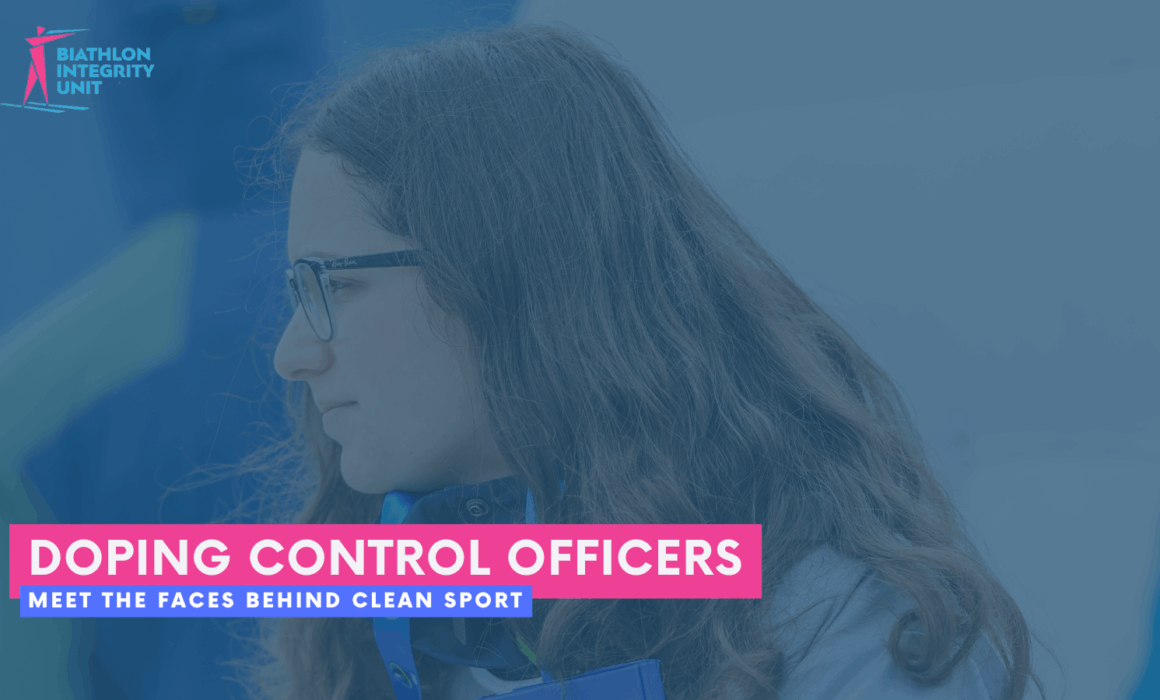DCOs are people too!
As the BIU’s Prevention Manager, I work closely with National Anti-Doping Organisations (NADOs), laboratories, WADA and other anti-doping stakeholders – including Doping Control Officers (DCOs). I personally know many of the DCOs working in biathlon, and I look forward to renewing friendly relations with them whenever I meet up with them at races.
However, I’m fully aware that athletes normally only encounter DCOs in the most potentially stressful circumstances: when they’ve been for a doping control, either at a race, or out of competition.
Even when this takes place at the athlete’s home, the process can appear impersonal and even adversarial to the athlete, given the DCOs’ requirement to maintain their distance for reasons of strict impartiality.
At the very least, athletes can feel like they are under suspicion for something that, in most cases, they didn’t do.
But DCOs are people too! So, what motivates them?
Tanja Ketola, a DCO with Finland’s FINCIS anti-doping agency, told me: “What drives me as a DCO is the chance to play a part in protecting clean sport and support the integrity of the athletes around the world.
“I am happy to know that I can contribute to the athletes’ experience by always trying to make the controls as smooth and reliable as possible.”
Kerstin Roth, a DCO with Germany’s PWC a Sample Collection Agency, said that she followed in the footsteps of her husband by becoming a DCO, having first accompanied him in the role of a witness for female athletes during sample collections.
She said: “I love being able to combine this work with travelling, it’s such a rewarding way to see different places, meet people, and contribute to fair sport at the same time.”
Kerstin continued: “Above all, I care deeply about fairness. I can’t stand injustice – everyone should have the same chance. But I don’t do this job to ‘catch’ someone who dopes, but to help ensure every athlete has the opportunity to prove they’re clean and compete in a fair sport.”
Johannes Zangerl, a DCO with Swiss Sport Integrity, said: “As a former athlete myself I can relate to what it means to perform on the highest level. But where there is success there can also be drama, jealousy and cheating. I became a DCO by coincidence, but working for an organisation that tries to enable a fair playing field for all athletes is something I enjoy a lot.”
Johannes added that the DCO’s job is full of variety, saying: “Another plus with working for a NADO is that you get insights into all kinds of different sports, some of which you had no idea even existed!”
DCOs need to be up to date with new rules and practices, so they are required to attend educational sessions run by their NADOs.
Johannes said: “In our organisation we have monthly physical meetings, as well as yearly conferences to discuss any innovations, but also to address issues that we encounter in the field regarding the doping control process.
“We also have multiple online meetings in which our various departments inform their colleagues about improvements, innovations, achievements, etc. in their respective fields. These are especially useful for gaining a wider view and more insight.”
Many DCOs also have day jobs, such as doctors, nurses or teachers, but they are adept at finding ways to fit doping testing into their busy daily routines.
Kerstin said: “When I started about 10 years ago, I was working as a paramedic, and because of the shift schedule, I had enough days off to easily combine both jobs. Later, when I moved to work in anaesthesia at a hospital, I worked one week and had the next week off – again, a perfect fit!
“Now, I work as an alternative practitioner and mainly online, which gives me the flexibility to organize my time freely. That makes it easier than ever to combine everything.”
Athletes sometimes question the need to keep their whereabouts updated for out-of-competition testing, but Tanja stressed that detailed whereabouts information is crucial for enabling DCOs to do their jobs smoothly, without wasting time searching for athletes in remote areas.
She said: “Up-to-date whereabouts, with information about travel, competitions and other activities, make it possible for me as a DCO to plan the test thoughtfully – which often increases the chances of better timing and a smoother process for the athlete as well.”
So, remember: DCOs are not the police. And they’re not the enemy. They’re on the side of clean athletes. Next time you’re tested, it’s worth bearing in mind that that DCO is just doing the best he or she can to ensure that the sport we all love stays clean.
Lucie Rothauer
BIU Prevention Manager


